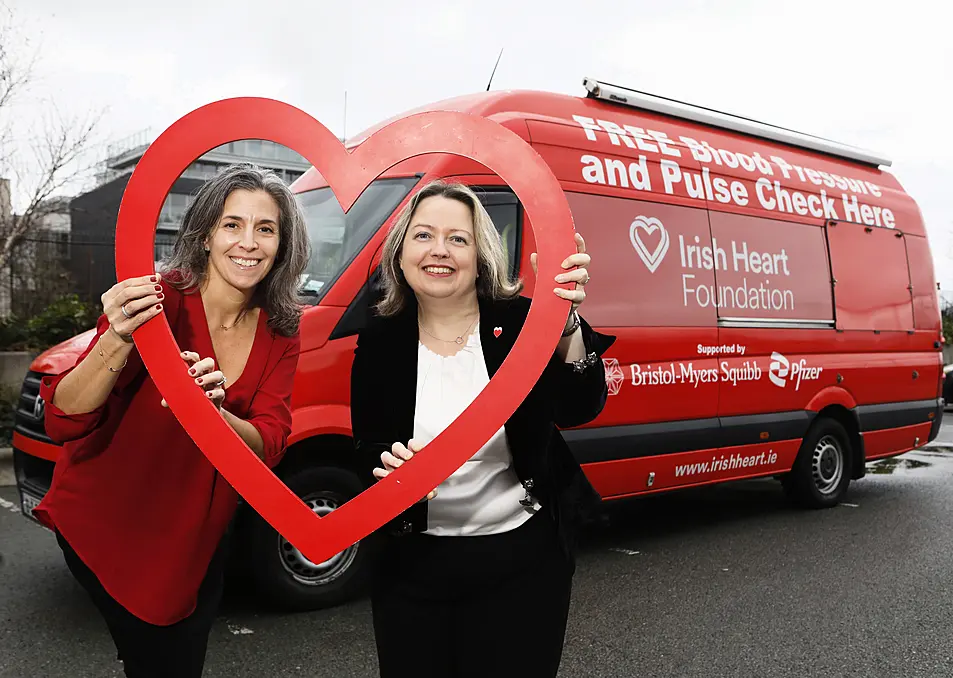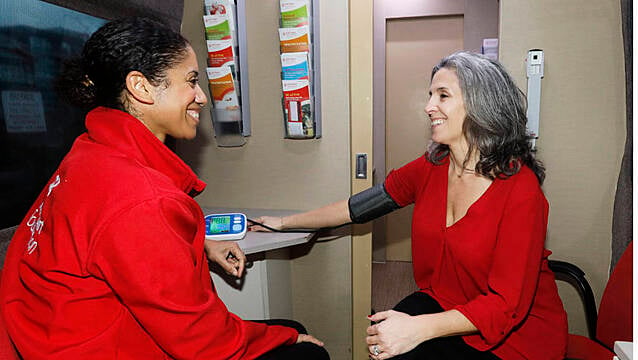Almost 6,000 free checks were carried out by the Irish Heart Foundation’s (IHF) mobile unit in 2024, with nearly one in four attendees advised to go to a GP for further assessment.
A new report on the IHF mobile health unit showed that in one case a blood pressure reading was so high that, after being examined by their doctor, the patient ended up in an emergency department.
The IHF’s nurse-led vehicle offers free heart health checks across the Republic, including blood pressure, pulse checks and lifestyle assessment.
Researchers from South East Technological University (Setu) evaluated its effectiveness and found that dozens of patients needed further check-ups after the nurse identified signs of high blood pressure or hypertension.

High blood pressure is regarded as a “silent killer” and is the leading trigger of cardiovascular disease, the main cause of death globally.
A sample of 300 men and women who used the mobile health unit showed that more than a fifth (22.1 per cent) were found to have high blood pressure, while almost double that number (42.9 per cent) had readings deemed to be higher than normal.
A worryingly high 39.5 per cent reported having no prior awareness of their blood pressure levels and almost a quarter (23.2 per cent) were directed to their GP based on the readings.
Six weeks later, 182 participants completed a follow-up questionnaire over the phone, which also revealed that of those who were directed to their doctor, 28.2 per cent underwent additional testing such as using an ambulatory blood pressure monitor.
A total of 10.3 per cent received a diagnosis of high blood pressure and began taking medication, while 2.6 per cent went to the emergency department due to dangerously high blood pressure levels.
The mobile health unit checks also inspired lifestyle changes among almost half of respondents, with 20.9 per cent making dietary improvements, almost 20 per cent becoming more physically active, a further 1.1 per cent quit smoking and the same proportion reduced or avoided alcohol.
Janis Morrissey, the IHF’s director of health promotion, said the findings underline the importance of the charity’s work in identifying people at high risk of heart disease and stroke.
She said: “The findings from the Setu report are crucial, as 80 per cent of premature heart disease and stroke is preventable.
“The mobile health unit service plays a vital role in identifying people at risk of heart disease and stroke.”
She added: “Unfortunately, what you don’t know could kill you as high blood pressure, in the vast majority of cases, has no symptoms. The good news is that, once diagnosed, it is easily managed.

“Everyone aged over 30 should get checked every five years and a GP can assess risk levels and may advise more frequent checks.”
Ms Morrissey said the IHF relies on the generosity of the general public and corporate donors like Pfizer Healthcare Ireland to run the unit.
Deb Mangone, country manager with Pfizer, said the company is delighted to have been supporting the “worthwhile initiative” since 2022.







